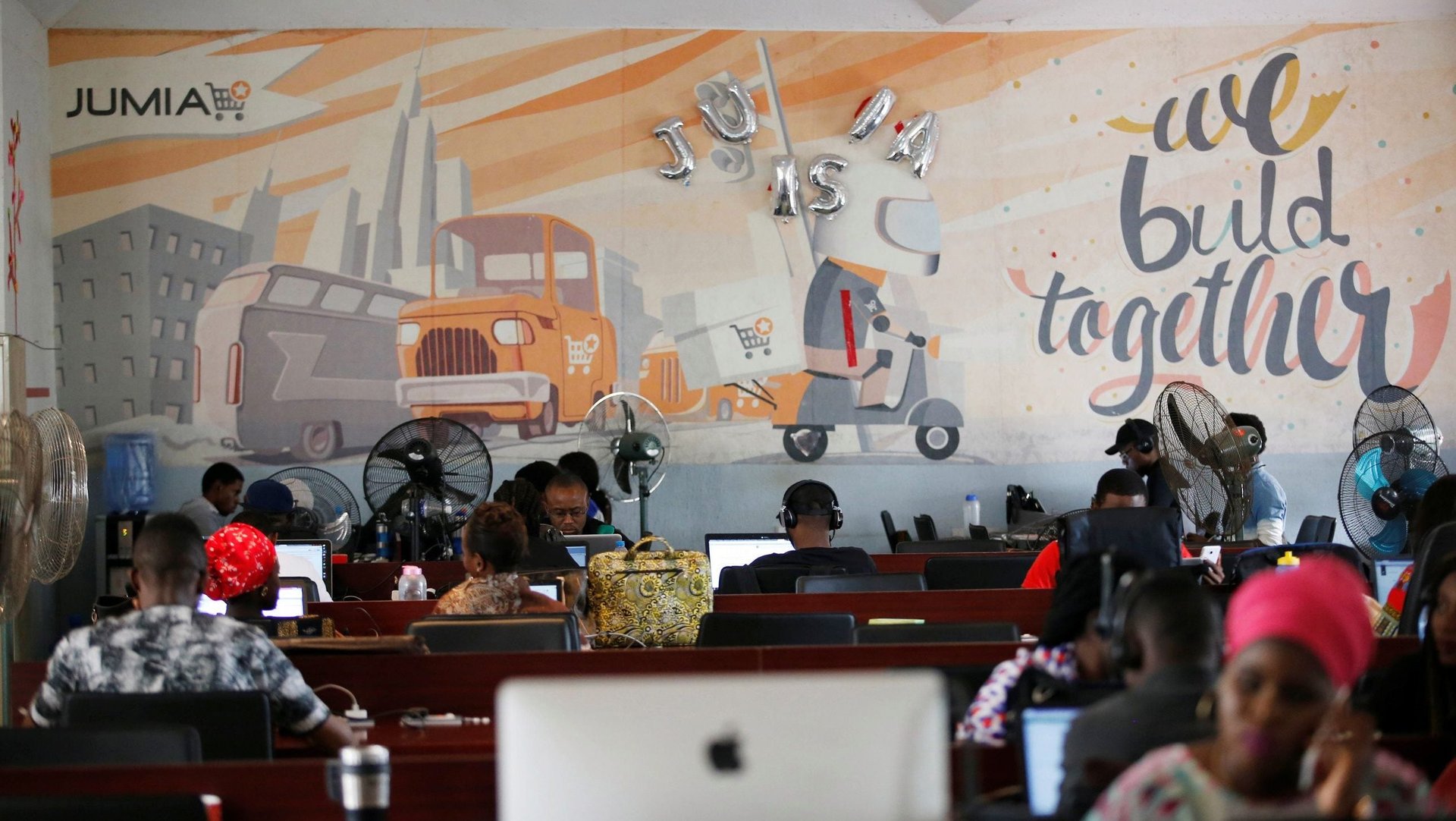Everything you need to know about Africa’s largest e-commerce operator’s billion-dollar IPO
This story has been updated


This story has been updated
Jumia, the largest e-commerce operator in Africa, has today launched its landmark initial public offering (IPO) on the New York Stock Exchange.
The IPO marks a pivotal fork in the company’s journey since first launching operations in Nigeria in 2012 and expanding over time to 14 African countries with businesses across several verticals including food delivery, real estate, logistics, hotel and flight bookings.
While Jumia’s status as an “African company” remains subject of debate, its IPO is significant for African tech ecosystems as it’s the first major African-focused venture-funded tech company to go public on a major global exchange.
Timeline
A possible Jumia IPO was first reported last September on the heels of similar listings by other startups owned by Rocket Internet—Jumia’s parent company. The listing was however confirmed when the e-commerce giant first filed its S1 documents with the U.S. Securities and Exchange Commission (SEC) on Mar. 12 to launch its public offering on the New York Stock Exchange.
The company was initially slated to launch its IPO on Apr. 11 but moved it by a day to allow investors get up to speed with its updated numbers for the first quarter of 2019. Jumia will trade using “JMIA” as its ticker. The IPO is being underwritten by some of Wall Street’s best known banks including Morgan Stanley and Citigroup. Citadel Securities will be serving as the Designated Market Maker.
Pricing
Jumia set a share price range between $13 and $16 with its updated S1 filing showing the company will offer 13.5 million shares for purchase. But following a roadshow to gauge investor interest, Jumia’s shares were priced at $14.5, the midpoint of its initial range. The company confirms it has raised $196 million through the IPO.
Depending on investor interest, Jumia’s shares could have been priced above the set range. For instance, Lyft, the US ride hailing company launched its offering last month at $72 per share after initially setting a share price range between $62 and $68.
Ahead of Rocket Internet, Jumia’s largest shareholder is MTN, Africa’s biggest telecoms company which has been reportedly prepared to sell its Jumia shares during the IPO as it aims to reduce debt amid long-running corporate disputes with the government in Nigeria, its largest market.
More recent shareholders include French drinks maker Pernod Ricard SA and Mastercard which invested $56 million in a private stock sale ahead of the IPO.
Investor expectations
While the stock’s performance can only be judged after trading begins, investors who have a track record of backing e-commerce companies in emerging markets tell Quartz Africa Jumia can ride on the coattails of successes of other global e-commerce giants.
Indeed, the novelty of Jumia being the largest e-commerce player across Africa and the first to go public is predicted to drive interest, especially from retail investors looking to make a bet based on similar successes of Amazon and Alibaba. “As a headline, retail investors specifically are going to say ‘that sounds like the future’ [but] institutional investors will be a lot more discerning beyond just the headline,” says Kevin Carter, founder of a US-based exchange traded fund focused on internet and e-commerce companies in emerging markets.
The expected interest, investors predict, will not be shaken by the scale of losses Jumia has incurred while operating in its African markets. As its S1 filing show, as of Dec. 31 2018, the company has accumulated losses of nearly $1 billion.
Sign up to the Quartz Africa Weekly Brief here for news and analysis on African business, tech and innovation in your inbox
Want a better understanding of the 2019 IPO landscape? Sign up for a free trial of Quartz membership and check out our premium field guide to the tech IPO boom.